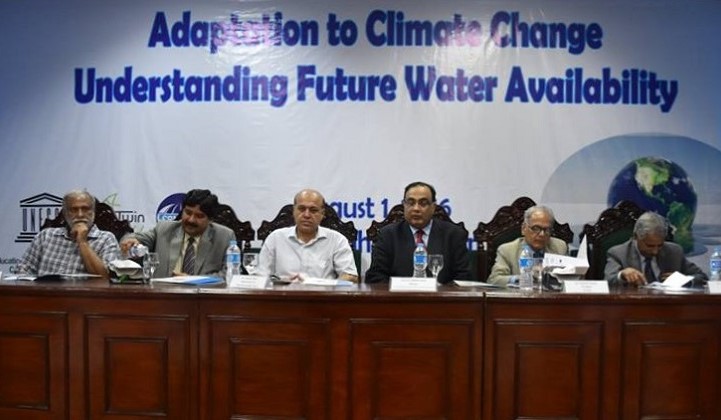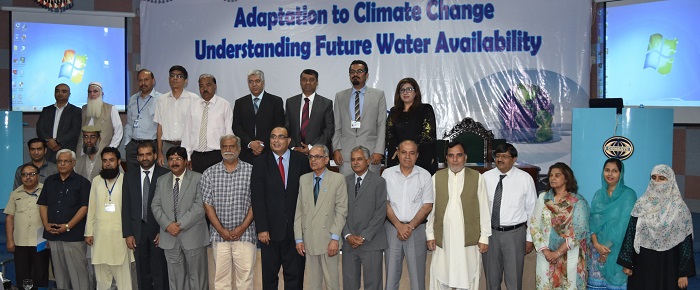International Dialogue on Adaptation to Climate Change- Understanding Future Water Availability
Go Back

International Dialogue
Adaptation to Climate Change- Understanding Future Water Availability
August 1, 2016
Auditorium, CIIT-Wah, Pakistan
An International Dialogue on “Adaptation to Climate Change- Understanding Future Water Availability” was organized by UNESCO Chair on Knowledge Systems for Integrated Water Resource Management held in COMSATS Institute of Information Technology (CIIT), Wah campus Pakistan on August 1, 2016. Objective of the dialogue to improve incorporation of information about current climate variability into water-related management in order to assist adaptation to longer-term climate change impacts.

Prof. Dr. Tayyab Akram, Director CIIT-Wah, welcomed the participants and then a presentation on "Vulnerability of Pakistan’s water sector to climate change impacts" was made by Dr. Saeed A. Asad from Centre for Climate Research & Development (CCRD) CIIT, Islamabad. He highlighted the issues that only a limited number of organizations/experts are involved in studies around the climate change-hydrology nexus. Researchers are facing challenging barriers such as access to quality data, financial constraints, and a lack of trained human resources, along with the non-availability of scientific tools and the non-existence of a water resource regulatory authority and a central databank were identified as major impediments for scientists.
Dr. Shahbaz Khan, Director UNESCO Regional Science Bureau for Asia and Pacific, Indonesia gave a detailed overview of Climate Change Adaptation and Water Security Issues in Asia Pacific. He emphasized that we need to urgently consider ways to transit towards a Green Economy (the Rio+20 agenda). Climate change is linked to almost all the other global challenges. The 10 key global challenges were discussed; i.e., poverty eradication, pollution, population growth, food security, diseases, disasters, water and environmental resources, climate change, peace and security. It is a challenge to solve these issues while reducing GHG emissions, he said. The imbalance of our ecosystem was also underlined. Some UNESCO projects related to water education and climate change adaption were mentioned; which include; International Hydrological Programme (IHP), Integrated Flood Analysis System (IFAS), Man and the Biosphere (MAB), Indian Ocean Tsunami Information Centre (IOTIC), ADopting DRR in Education for Safer Schools (ADDRESS)

The technical session was chaired by Prof. Dr. Shahbaz Khan; the co-chairs were Prof. Dr. Manzoor Hussain Soomro President ECOSF, Prof. Dr. Ashraf, Prof. Dr. Rai Niaz, Prof. Dr. Tayyeb Akram and Mr. Alamgir Khan. Dr. Soomro in his remarks stressed on the understanding of climate change and the awareness of the impacts climate change may have on the globe. He further said that inquiry based approach is very much necessary to have a sustainable life, by avoiding further damage to the globe due to less awareness and education about climate changes and their long term effects. “Since climate change is linked to almost all the other global challenges so the loop holes in research sector must be covered”, he added.
It is pertinent to mention that UNESCO and ECOSF are working in collaboration for various programs. The ongoing collaborative programs are; Inquiry Based Science Education (IBSE), Man and the Biosphere (MAB), Engineering Qualification Standardization (EQS) in ECO Region.